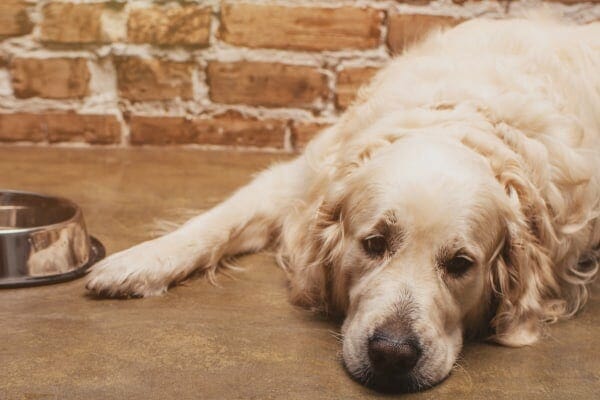If your dog is not drinking water but eating, it could indicate a potential health issue that needs to be addressed. This behavior could be a sign of dental problems, kidney disease, or gastrointestinal issues, and it’s essential to monitor your dog’s overall well-being.
Ensuring that your dog stays hydrated is crucial for their overall health. Lack of water intake can lead to dehydration and further health complications. We will explore various reasons why your dog may not be drinking water and provide helpful tips on how to encourage proper hydration.
By understanding the potential underlying causes and implementing suitable strategies, you can help maintain your dog’s well-being and prevent potential health issues associated with decreased water consumption.
Understanding The Issue
If you notice that your dog is not drinking water but is still eating, it can be concerning. This behavior may indicate an underlying issue that needs to be addressed. It’s important to observe your dog’s behavior patterns to get a better understanding of the situation. Pay attention to the frequency of water intake and any changes in eating habits. Excessive thirst, lack of interest in drinking, or changes in appetite could be potential indicators of a health problem. Consulting a veterinarian is crucial to rule out any medical conditions and to ensure that your dog receives the necessary care. By evaluating the behavior patterns and seeking professional guidance, you can address the issue and help your dog maintain optimal health and well-being.
Possible Causes
If your dog is not drinking water but eating, it could be due to various reasons. Possible causes include dental issues, dehydration, illness, or anxiety. Monitoring your dog’s behavior and consulting a veterinarian can help determine the underlying cause and provide necessary treatment.
Physical Health Concerns
If your dog is not drinking water but eating, it could indicate a potential health concern. There are several reasons for this behavior, including dental issues, kidney problems, or underlying illnesses. It’s essential to monitor your pet’s behavior and consult a veterinarian if the issue persists.
Environmental Factors
Environmental factors like temperature and water source can impact your dog’s drinking habits. Extreme temperatures can cause your dog to drink less water, as they may be panting more to cool down. Ensure your dog has access to clean, fresh water at all times and consider changing the water source, as some dogs may prefer running water over still water. By adjusting these environmental factors, you can encourage your dog to drink more water, ensuring they stay properly hydrated.
Behavioral Issues
If your dog is not drinking water but eating, it could be due to behavioral issues such as stress or anxiety. Dogs, like humans, can exhibit changes in behavior when they are under stress or experiencing anxiety. This can manifest as a decreased desire for water, but a continued preference for food. It is important to monitor your dog’s behavior and look for signs of stress or anxiety, such as excessive panting, pacing, or hiding. In addition to stress or anxiety, some dogs may simply have a preference for food over water. To encourage your dog to drink water, try offering it in a different bowl or adding a small amount of low-sodium broth to the water to make it more appealing.
Addressing The Concern
It can be concerning if your dog is not drinking water but eating. Encouraging water intake is crucial to prevent dehydration. You can try adding water to your dog’s food or using a pet fountain to make water more appealing. Additionally, seeking veterinary advice is essential to rule out any underlying health issues. Your vet can provide personalized tips and address any concerns. It’s important to monitor your dog’s water intake closely and make any necessary changes to ensure they stay properly hydrated.

Credit: toegrips.com
Frequently Asked Questions For Why Is My Dog Not Drinking Water But Eating
Why Is My Dog Not Drinking Water But Eating?
If your dog is not drinking water but eating, it could be due to various reasons such as dental problems, illness, or dehydration. It’s essential to monitor your dog’s behavior closely and consult a veterinarian if you notice any concerning symptoms.
Offer fresh water regularly and ensure a balanced diet to support your dog’s health.
What Can I Do If My Dog Is Not Drinking Water?
If your dog is not drinking water, you can try offering ice cubes, flavored water, or wet food to increase their fluid intake. Additionally, ensure the water bowl is clean, and consider using a pet fountain to entice your dog to drink.
If the issue persists, consult a veterinarian for further evaluation and advice.
How Can I Encourage My Dog To Drink More Water?
Encouraging your dog to drink more water can be achieved by adding low-sodium broth to their water, providing multiple water bowls around the house, and incorporating moisture-rich foods into their diet. Regular exercise and play can also stimulate your dog’s thirst.
Make sure to monitor their drinking habits and seek professional guidance if necessary.
Should I Be Concerned If My Dog Is Not Drinking Water?
A dog not drinking water can be a cause for concern as it could indicate an underlying health issue. Dehydration can lead to serious consequences, so it’s important to monitor your dog’s hydration levels and seek veterinary attention if they continue to avoid drinking water.
Keep a close eye on your dog’s overall behavior and consult a professional if you have any concerns.
Conclusion
Ensuring your dog stays hydrated is crucial for their health. If your dog is not drinking water but eating, it could indicate an underlying issue. It’s important to monitor their behavior and consult a veterinarian. By addressing the problem early, you can ensure your furry friend stays happy and healthy.


